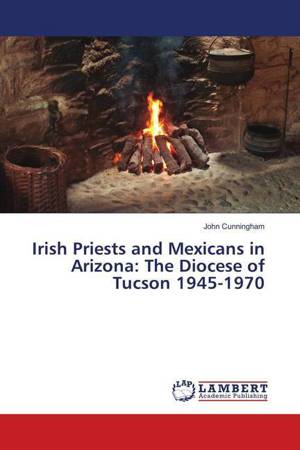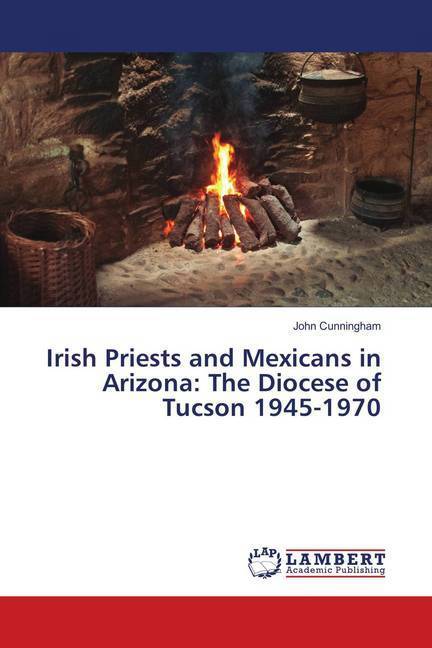
Je cadeautjes zeker op tijd in huis hebben voor de feestdagen? Kom langs in onze winkels en vind het perfecte geschenk!
- Afhalen na 1 uur in een winkel met voorraad
- Gratis thuislevering in België vanaf € 30
- Ruim aanbod met 7 miljoen producten
Je cadeautjes zeker op tijd in huis hebben voor de feestdagen? Kom langs in onze winkels en vind het perfecte geschenk!
- Afhalen na 1 uur in een winkel met voorraad
- Gratis thuislevering in België vanaf € 30
- Ruim aanbod met 7 miljoen producten
Zoeken
Irish Priests and Mexicans in Arizona: The Diocese of Tucson 1945-1970
John Cunningham
Paperback | Engels
€ 41,45
+ 82 punten
Omschrijving
Beginning in the mid-20th Century, 103 Roman Catholic priests from Ireland served in Arizona. Their ministry began with Mexican people with whom they shared something of a common consciousness, resulting from similar histories, worldviews, and cultural values. In the main they were sympathetic to folk traditions and experienced a synergy with Mexicans which enabled them to adapt and learn from Hispanic communities. This was not the case with other clergy. Paradoxically, the Irish priests who accepted Mexican people also accepted the racist structures which marginalized them. In reconstructing this history salient themes engage us: ethnicity, religion (official/popular), prejudice/discrimination, power relations, and the discovery of common ground amid differences. This matrix gives rise to a complex crisscrossing of trajectories of Catholics and Protestants (in society), Irish and Mexican Catholics (in the church), priest and parishioners (in the parish). We won't see anything like this historic encounter again, for the well of Irish vocations has dried up and the once solidly Catholic Mexicans have in growing numbers embraced other faiths. This passing of an era holds lessons.
Specificaties
Betrokkenen
- Auteur(s):
- Uitgeverij:
Inhoud
- Aantal bladzijden:
- 240
- Taal:
- Engels
Eigenschappen
- Productcode (EAN):
- 9783659777769
- Uitvoering:
- Paperback
- Afmetingen:
- 150 mm x 220 mm

Alleen bij Standaard Boekhandel
+ 82 punten op je klantenkaart van Standaard Boekhandel
Beoordelingen
We publiceren alleen reviews die voldoen aan de voorwaarden voor reviews. Bekijk onze voorwaarden voor reviews.









